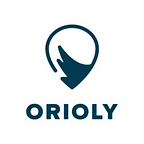4 Reasons to Invest in a Website Before Tourism Rebounds
Finding tourists reading brochures or asking concierges about things to do was a common scene for hotel lobbies in the past.
However, due to technology, the way travelers search and book experiences has been changing over the past years.
Before the pandemic, an online presence was important, now, it’s a matter of survival.
It gets clearer when you realize that 90% of people do all their holiday research online and 80% will end up making their booking online as well.
A website is a powerful tool for online sales and now it’s time for you to invest on your own. If you are not convinced yet, we’ve listed good reasons that will change your mind.
A well-built and beautiful website inspires travellers
No matter the circumstances, all trips always start as a holiday dream.
According to a Google research, an average person in the US spends 24hrs a week online, from that time, over 13% is dedicated to travel-related content.
That’s over 160hrs per year just researching destinations, experiences and accommodations!
A portion of it is dedicated to websites where the traveller learns and gets inspired about potential destinations.
That is your chance to catch the attention of your potential customer and show why it’s worth traveling to your location.
Be found when potential customers plan a trip
Travelers spend a good amount of time googling information that will help them plan the perfect trip.
According to a Google study, in the 12 weeks leading up to a trip, there are 3 times as many experience searches as hotel searches, and 8 times more than air searches.
Simply put, closer to a trip, travellers are far more interested in what they are going to do than where they are going to sleep or even how they will get there.
After all, no one wants to miss a once-in-a-lifetime experience because of a late booking or pay more to visit must-see attractions.
Having a website increases your chances of being noticed during this critical stage of the buying journey.
Have control over your sales strategy
Don’t rely 100% on Online Travel Agencies (OTAs) for direct bookings. Use them to complement your sales strategy in addition to your own website.
Some cons of OTAs are:
- They charge high commissions.
- It’s hard to stand out from the crowd because your product page layout and content is standardized.
- By the end of the day, they are competing with you for search traffic, customers and revenue.
On the other hand, your website is your domain. Shape it the way you need to delight your target customer.
Just don’t forget to implement a booking button on it to convert visitors into paying customers.
It works as a direct channel to communicate with your customer
Tour booked and departure set, your customer is ready to live the best part of travel!
But be prepared. Prior to the experience they expect to have all their doubts clarified, nerves calmed and any issues resolved ASAP.
During that period, your website works as a communication channel and a ‘go-to’ source for knowledge about the destination and any essential information about the tour.
Make it easier for your guest to talk with you by adding on it a live chat or a simple contact us page with a form.
Provide impeccable support and your customers will be more likely to be positive about your business when writing their reviews.
Should you worry if you don’t have a website?
Considering the actual scenario, having a website is definitely something tour operators should consider.
If this article was able to convince you of that, remember, have a mobile responsive website, fill it with great content, connect to a booking engine, and offer a great user experience.
By doing that you are not only helping your business, but you are also making someone’s holiday an even more memorable experience
Originally published at https://www.orioly.com on January 19, 2021.
